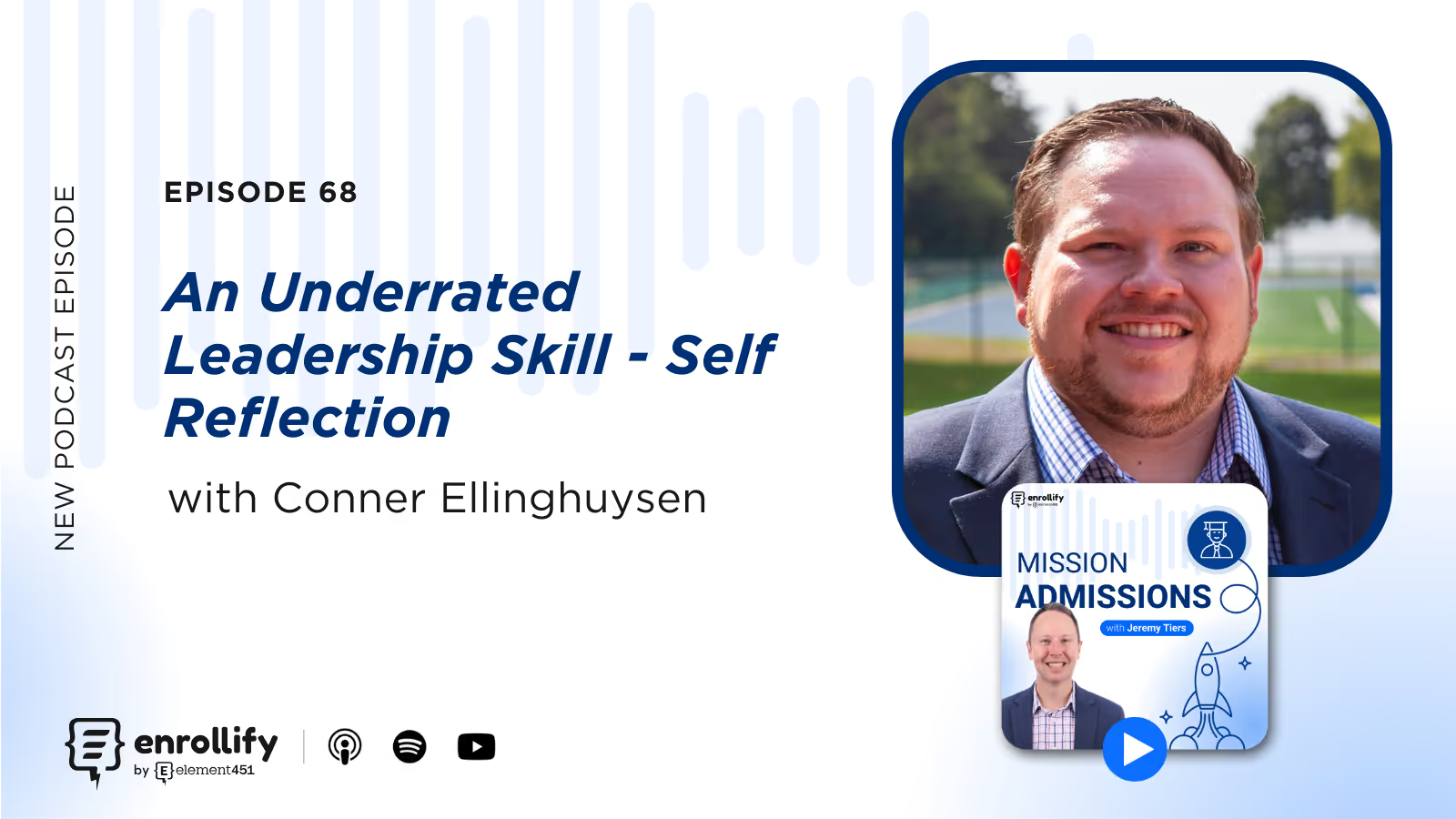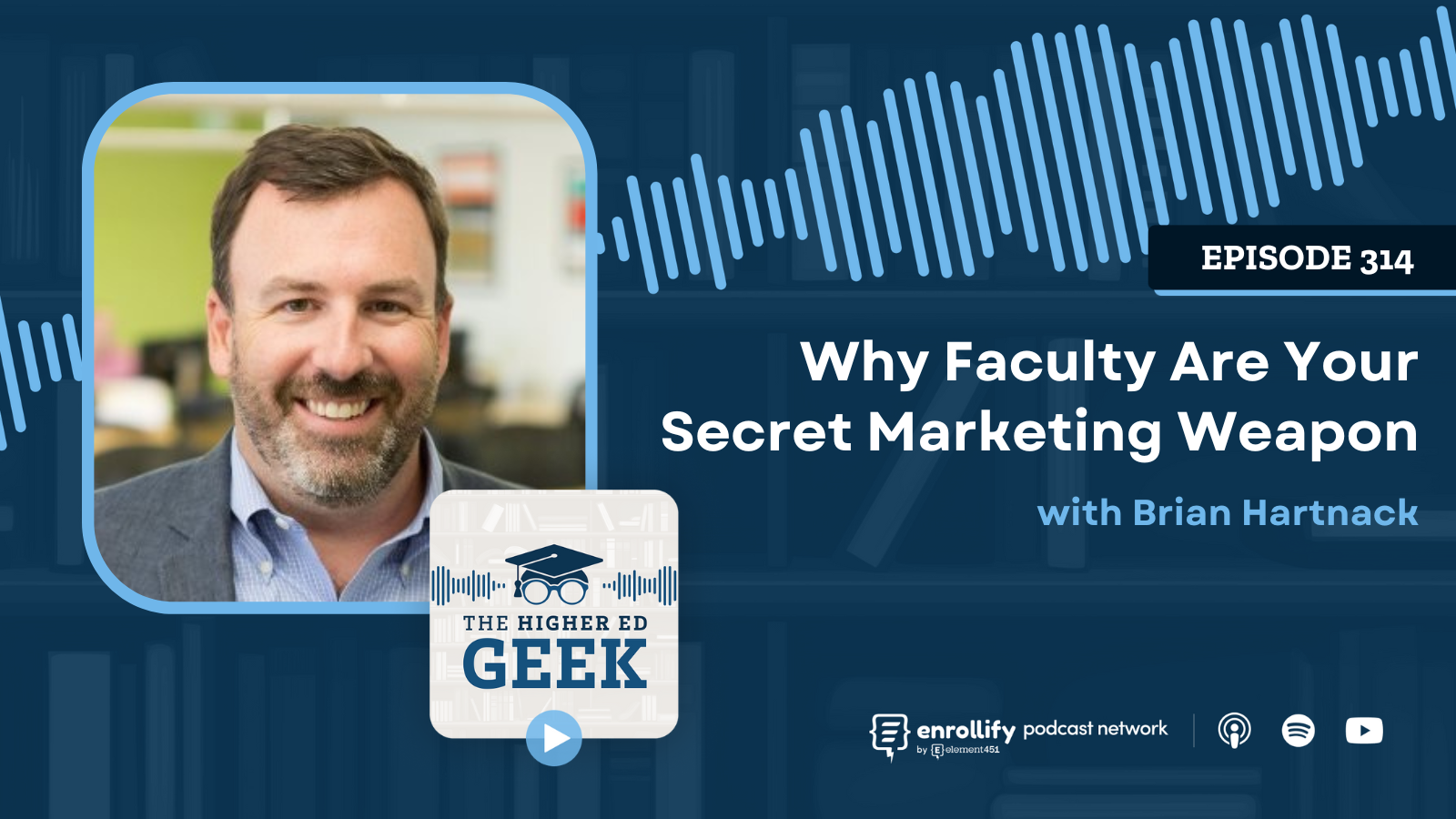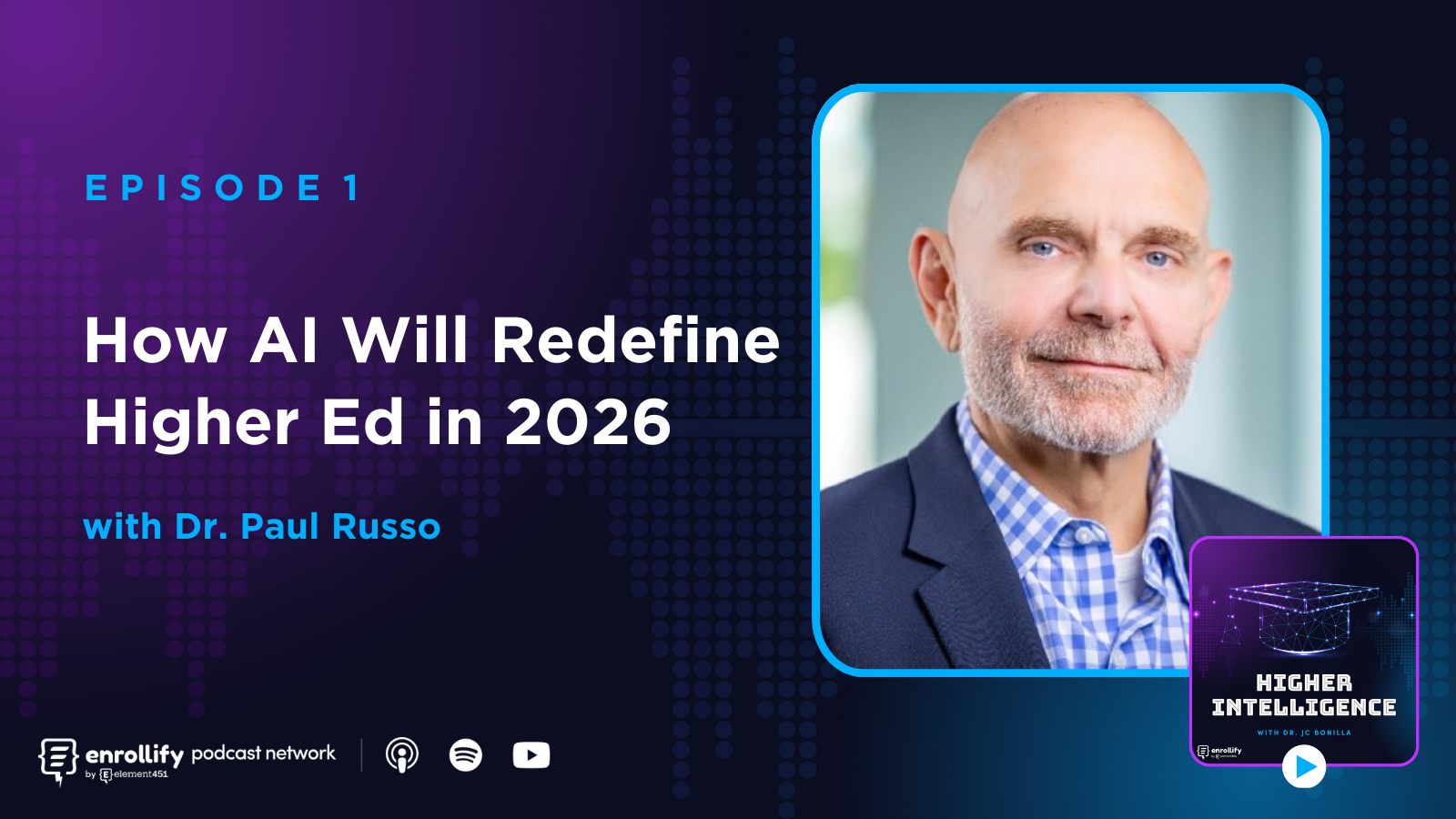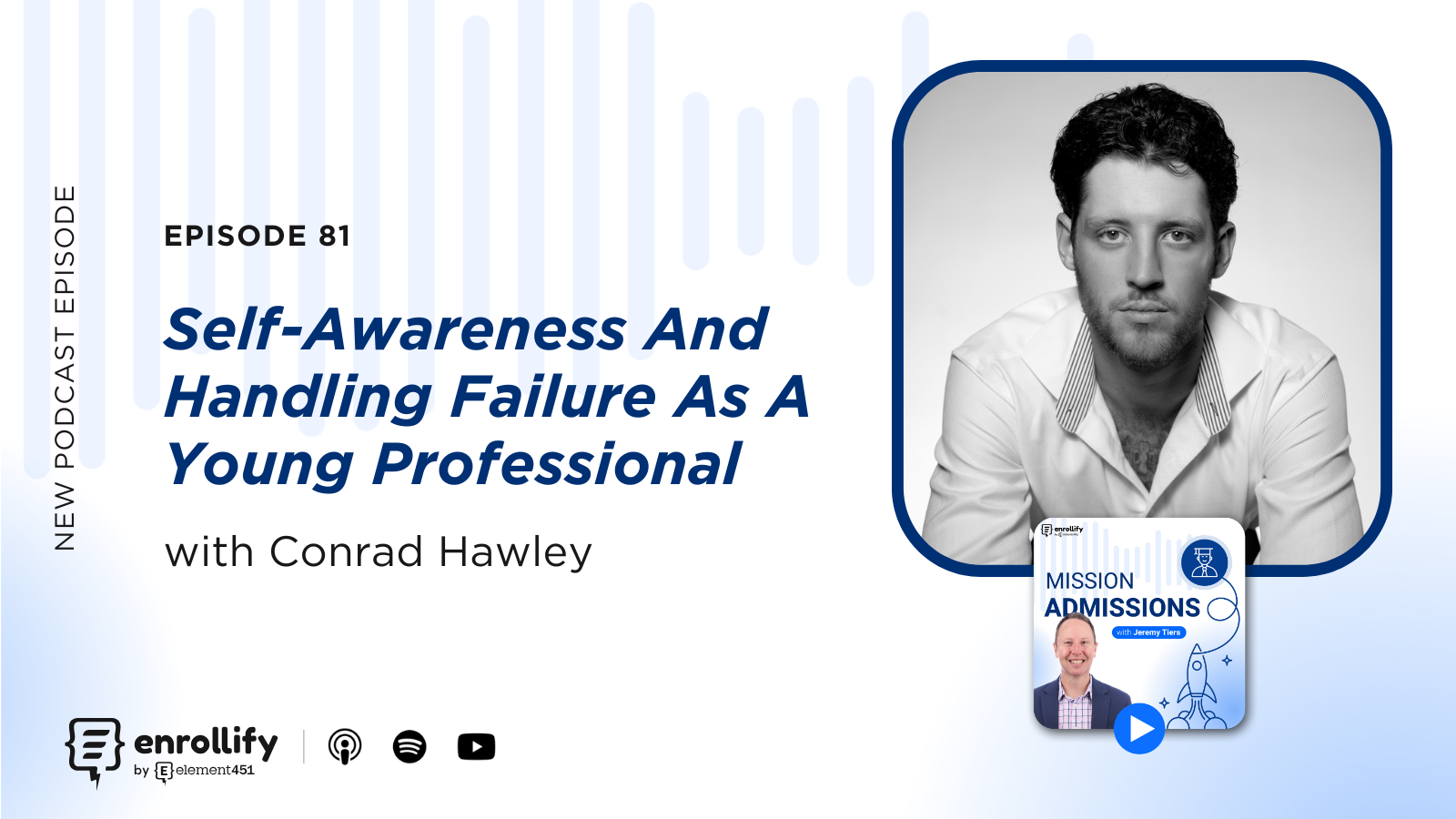About the Episode
Got a story to tell? An innovative idea to share? Fill out our guest nomination form and let's chat!
About the Episode:
In this episode of Mission Admissions, host Jeremy Tiers chats with Conner Ellinghuysen about how becoming more self-aware and prioritizing self-reflection have made him a better leader.
Key Takeaways
- True self-awareness is rare: While most believe they're self-aware, research suggests only 10–15% truly are.
- Reflection isn’t fancy—it’s essential: Self-evaluation can be as simple as a walk and a notepad or voice memo.
- Leadership requires vulnerability: The best leaders invite feedback, admit mistakes, and grow from them.
- Culture starts at the top: Teams reflect the mindset of their leaders—prioritizing growth means modeling it first.
- Feedback isn’t failure: Creating a culture where reflection and honesty are safe helps everyone improve.
- Self-awareness is scalable: It makes you a better director, coach, teammate—and ultimately, a better human.
Why do so few people practice true self-awareness?
Connor Ellinghuysen kicks off the conversation by noting a hard truth: most people are afraid to look inward. Not because of vanity, but because facing flaws is uncomfortable. In leadership, this fear gets amplified—admitting you don’t have all the answers can feel like weakness. But Connor reframes it as strength. Drawing on his 4-H experience, where self-evaluation was encouraged early and often, he explains that honesty about where you’re starting is the only way to improve.
In higher ed, there’s often more focus on doing than pausing. “We grind through moments,” Connor says, “hoping that staying the course is enough.” But without regularly taking inventory—asking why and how we’re operating—progress stalls. As leaders, it’s not about being perfect. It’s about being open to growth.
What does a self-reflection practice actually look like?
Connor’s method isn’t complicated—it’s consistent. During busy recruitment seasons, he does quick daily or weekly mental check-ins. In slower seasons, he creates more space for deeper reflection. Sometimes that’s a walk. Sometimes it’s a voice note or an email to himself. And sometimes it’s a team-wide strategy session. What matters is that reflection happens intentionally, not just in moments of crisis.
He likens admissions work to gardening: planting (relationship-building), weeding (sorting applications), and harvesting (yield season). Each phase requires a different kind of self-check. Daily questions like “Did I make someone feel seen today?” or “Did I lead with purpose?” keep him aligned with his goals—and his values.
Connor’s biggest advice? Don’t overthink the how. Just start. Reflection can be messy or casual—it just has to be honest.
How do you build a culture of reflection across your team?
Connor doesn’t just reflect personally—he’s brought reflection into his team culture. From day one in his director role, he’s been transparent about expectations and vulnerabilities. And that intentionality paid off. When his team once called him into a meeting to offer brutally honest feedback about how he was leading, he could’ve shut down. Instead, he chose to listen.
That moment, he says, was one of the hardest of his career—and one of the most transformational. It helped him realize that culture isn’t just a buzzword. It’s what people experience every day. Leaders set the tone, and that includes giving team members the safety to speak up.
Today, Connor's office has a standing culture of feedback. Daily team check-ins, reflective prompts, and collaborative strategy sessions are regular practice. When everyone feels empowered to reflect and speak up, growth becomes a shared pursuit—not just an individual one.
What are Connor’s five pillars of effective leadership?
During a recent conference, Connor shared what he calls the Five T’s of Leadership—a framework that reflects his belief in self-awareness as a leadership superpower:
- Think: Take a beat before speaking or reacting. Your words and tone set the emotional temperature for your team.
- Trust: Without trust, there’s no honesty. Leaders must create a safe space for disagreement and feedback.
- Try: Encourage experimentation. Even failed attempts bring insights that improve strategy.
- Transparency: Be real about what you know—and what you don’t. It builds credibility and respect.
- Thanks: Gratitude fuels motivation. Recognize effort across your campus community, not just your team.
These principles are simple, but not easy. They require leaders to stay curious, stay humble, and stay teachable.
What happens when leaders skip reflection?
Connor doesn’t sugarcoat it: if you're not regularly self-evaluating, you'll wake up one day and realize your team has grown—but you haven’t. Leadership isn’t about staying busy; it’s about staying intentional. After a recent recruiting cycle, Connor realized he had slipped into auto-pilot. That recognition sparked a change. Now, his team starts each day with a morning roundup. They debrief, they reflect, and they center their values before diving in.
The danger of skipping self-reflection isn’t just stagnation—it’s disconnection. You lose sight of your purpose, your people, and your impact. But the fix? It’s within reach. It starts with a notebook. A question. A pause. A choice to lead with awareness.
Connect With Our Host:
Jeremy Tiers















